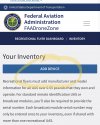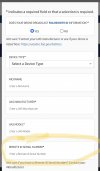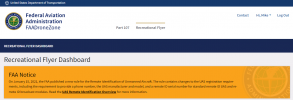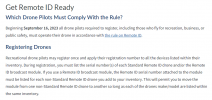I 100% believe that if the spoofing actually causes fear or harm then there’s liability maybe even criminal liability. I don’t have any question on that. To me the question is can you be cited for this if you are just found to be doing it for the sake of privacy and security.
There are many things that are legal to use for certain purposes but are serious crimes to use depending on the specific facts. Take a knife for example. Perfectly legal to use one to chop up dinner, perfectly legal to own, but becomes use of a deadly weapon if used in conjunction with crime. However, knife use in and of itself is not unlawful.
There are other things like schedule 1 narcotics that (in federal law at least) are illegal in and of themselves and are illegal no matter how you use them simply for their potential to cause harm. Should RID spoofers fall into this category? Maybe, but I can’t think of something that falls into this group that doesn’t have a law specifically banning them.
One good thing that came out of RDQ vs FAA is that it legally answers this question. The opinion reads,
“A Remote ID message may only be matched to that nonpublic information and used by the FAA or disclosed to law enforcement outside of the FAA “when necessary and relevant to a[n] FAA enforcement activity,” Privacy Act of 1974; System of Records Notice, 81 Fed. Reg. 54,187, 54,189 (Aug. 15, 2016), and even then it is subject to “all due process and other legal and constitutional requirements,” Final Rule, 86 Fed. Reg. at 4433. The Rule does not otherwise authorize private or public actors access to drone owners’ or pilots’ nonpublic personally dentifying information, id. at 4433-34, nor does it permit or contemplate storage of Remote ID data for subsequent record searches.”….
The Rule authorizes the FAA alone to match the drone’s nonpublic serial number to registration information, which includes the owner’s name and contact information, and to use that personally identifying information only for airspace safety and security purposes relating to the drone’s operation. The Rule’s preamble specifies that “registration data pertaining to individuals is protected in accordance with the requirements of the Privacy Act (5 U.S.C. 552a).” 86 Fed. Reg. at 4433. Any use of Remote ID data, including by law enforcement personnel, “is bound by all Constitutional restrictions and any other applicable legal restrictions.” Id. at 4435; accord id. at 4433.
Consistent with those limitations, the Remote ID Rule does not, without further regulatory action, authorize law enforcement personnel to access drone owners’ personally identifying information separate from the FAA’s involvement.”
I read that to mean law enforcement aren’t going to be able to quickly cross reference that information, need a good reason to gain that information, has to be for an FAA violation regarding drone operation (not just general police work) and may even require a warrant but I’d like your take.
I don’t believe the first amendment protects speech that causes fear, disturbance, chaos, or panic anyway.
















